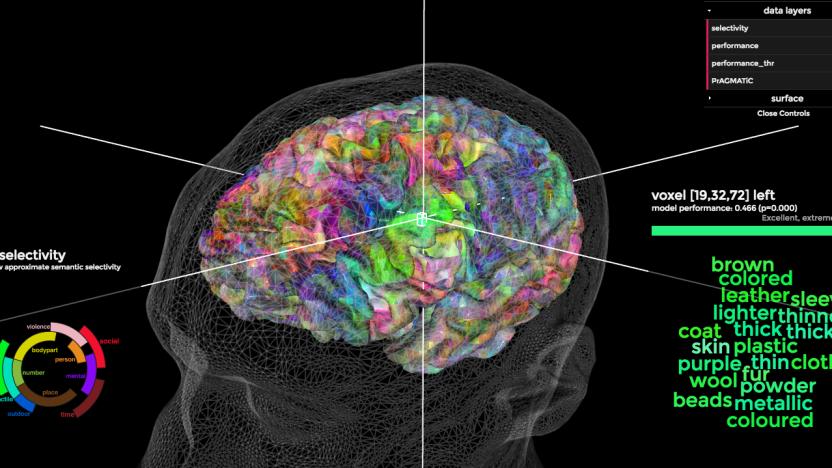meaning
Latest

Scientists use 'Moth Radio Hour' to map meaning across the brain
Researchers at the University of California, Berkeley took on the complex task of mapping meaning along the cerebral cortex, the thin membrane that stretches across the entire brain, and their results suggest language is much more complex than previously thought. Seven volunteers listened to The Moth Radio Hour, a program where people share emotional personal tales, while lying in a functional MRI machine that tracked how their brains responded to 985 specific concepts, Science News says. Researchers mapped the blood flow to 60,000 to 80,000 pea-sized regions across the cerebral cortex, resulting in a dense word map covering the entire brain. Turns out, some concepts showed up in several areas across the brain: "Top," for example, appeared in a section that handles clothing and one that deals with numbers.

Google to switch on 'semantic search' within months, emphasize things as well as words
A search engine should be about more than just keywords. MC Hammer believes that passionately and Google must do too, because over the next few months and years it'll gradually adjust its own algorithms to put greater emphasis on "semantic search". Under this system, search queries are run through a vast knowledge database that discovers relationships with other words and facts. A Mountain View exec explained it thus: If you search for "Lake Tahoe", you won't just get ranked websites containing those two words but also key attributes about the lake, such as its location, altitude, average temperature and Bigfoot population. If a piece of knowledge isn't the in the ever-expanding database, the search engine will still use semantic search to help it recognize and evaluate information held on websites. In doing this, Big G hopes to compete with social networks that are amassing their own valuable (and sometimes intrusive) databases full of personal information, while also encouraging people to stay longer on its site and see more targeted ads. Google, who is Viviane Reding?

